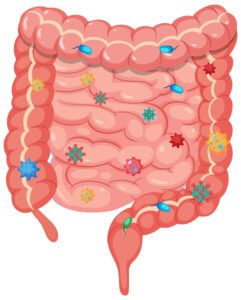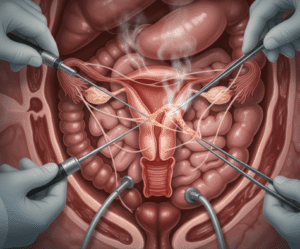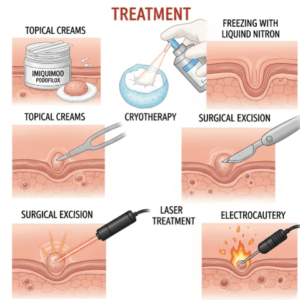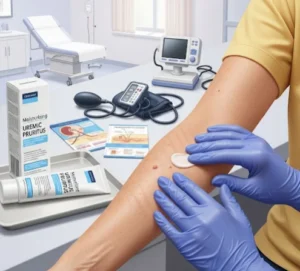Overview
Infant botulism is a rare but serious neurological disorder that affects infants, typically under 12 months old, caused by the ingestion of Clostridium botulinum spores. These spores germinate in the infant’s immature digestive system, producing a toxin that interferes with nerve function, leading to muscle weakness and paralysis. In Korea, pediatric neurology and infectious disease specialists provide prompt diagnosis and treatment, including supportive care and antitoxin administration, to ensure better outcomes.
What is Infant Botulism?
Infant botulism occurs when Clostridium botulinum spores colonize the infant’s intestines and release botulinum toxin, which blocks nerve signals to muscles. This results in characteristic symptoms such as muscle weakness and decreased reflexes. Unlike foodborne botulism in adults, infant botulism is caused by internal toxin production rather than ingestion of preformed toxin.
Symptoms
- Constipation, often the first sign
- Poor feeding and weak sucking reflex
- Generalized muscle weakness and floppy movements (floppy baby syndrome)
- Weak cry and decreased facial expression
- Reduced gag and swallow reflexes
- Breathing difficulties due to respiratory muscle weakness
- Lethargy and decreased alertness
Causes
- Ingestion of Clostridium botulinum spores from the environment, soil, dust, or contaminated food
- Honey is a known risk factor and is not recommended for infants under 12 months
- Immature gut flora in infants unable to inhibit bacterial spore germination
Risk Factors
- Age under 12 months, particularly between 2-8 months
- Exposure to environmental dust or soil in homes or surroundings
- Feeding honey or foods contaminated with spores
- Premature birth or other conditions affecting gut flora
Complications
- Respiratory failure due to muscle paralysis requiring mechanical ventilation
- Prolonged hospitalization and feeding support via tubes
- Developmental delays if treatment is delayed
- Rarely, death if untreated or diagnosed late
Prevention
- Avoid feeding honey or unpasteurized foods to infants under 12 months
- Maintain clean household environments minimizing dust exposure
- Awareness and early recognition of symptoms for timely medical care
Treatment Options in Korea
Diagnosis
- Clinical evaluation based on characteristic symptoms and history
- Stool and intestinal samples tested for botulinum toxin or Clostridium botulinum spores
- Electromyography (EMG) showing characteristic nerve signal abnormalities
Medical Treatments
- Administration of Botulism Immune Globulin Intravenous (BIG-IV) to neutralize circulating toxin
- Supportive care including respiratory support if needed
- Nutritional support via feeding tubes until swallowing improves
- Close monitoring in pediatric intensive care units
Surgical or Advanced Therapies
- Rarely needed unless complications arise
- Mechanical ventilation for respiratory failure
Rehabilitation and Support
- Physical therapy to regain muscle strength and motor skills
- Regular developmental assessments post-recovery
- Parental education on long-term care and follow-up
Top Hospitals or Clinics in Korea
- Seoul National University Hospital – Pediatric Neurology and Infectious Diseases
- Samsung Medical Center – Pediatric Intensive Care Unit
- Asan Medical Center – Department of Pediatrics
- Yonsei Severance Hospital – Pediatric Neurology













